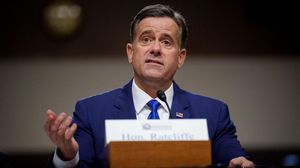Russian pensioners are set to receive additional financial relief this year, as discussions ramp up around possible additional indexation of pensions scheduled for February 2025. This decision follows the primary indexation earlier this year, which raised pensions by 7.3% on January 1, 2025, aimed at countering inflation rates which clocked at 9.52% for the year 2024.
On January 21, expert Yakov Yakubovich from the Institute of Fundamental Problems of Socio-Humanitarian Sciences noted the importance of annual indexation, which is determined by government decrees. Reflecting on the unusual economic climate, he stressed, “The actual inflation is higher than the official consumer price index.” He added, “Real inflation, particularly for markets affecting the less affluent segments of society, is rising faster.” This situation has prompted calls for greater adjustments to safeguard the purchasing power of Russia’s retirees.
According to Deputy of the State Duma Ekaterina Stenyakina, the budget can accommodate additional pension indexation measures. “The budget of the country is certainly ready for such actions,” she affirmed, underscoring the administration's commitment to supporting pensioners.
The proposed supplementary indexation, reportedly amounting to another 2.22%, would significantly affect nearly 40 million citizens receiving state pensions. With the additional increase, it is estimated average pension payments could potentially rise from 21,400 rubles to around 21,900 rubles, thereby allowing pensioners to regain some financial ground lost to inflation.
Government plans, confirmed by Yaroslav Nilov, Chairman of the State Duma Committee on Labor, Social Policy, and Veterans Affairs, promise to address disparities between actual and forecasted inflation rates. “The additional indexation will affect all recipients of insurance pensions, which involves about 40 million people,” he stated.
Even as the initial indexation provides some respite, concerns linger about its sustainability amid rising inflation. Leading member of the Duma's labor committee, Svetlana Bessarab, revealed intentions for social pensions to witness increases as well. Effective April 1, 2025, these pensions are expected to rise by 14.75%, with military pensions set to receive increments of 4.5% by October.
This comprehensive approach to indexation, integrating various elements of public welfare—including the incorporation of caregiver benefits—represents the government's broader strategy to bolster financial stability for the elderly and vulnerable populations. These adjustments come at a time when many Russian citizens report tightening financial conditions, marked by inflationary pressures impacting everyday costs.
The prospect of higher pensions signals potential shifts toward improved living standards for pensioners, especially as concerns about declining purchasing power remain prevalent amid economic strain. The discussions, set to culminate by February 1, 2025, will determine the finalization of these significant financial changes, which have the potential to ease the economic burden faced by millions.
Critics of the current pension structure argue the system requires reevaluation to accurately reflect economic conditions, pointing out the lag between expected and actual inflation rates. They warn against public complacency, advocating for continued scrutiny of proposed policies.
The ultimate goal remains clear: ensuring the financial wellbeing of pensioners by correlatively adjusting benefits with living costs, thereby solidifying social safety nets within this economic framework.
February 2025 holds the promise of changes intended to alleviate the financial pressures currently felt by many Russian pensioners. Should the government move forward with the additional indexation, it is hoped this will not only provide immediate relief but will also reinforce the assurance of caring governance, affirming governmental responsibility toward those who have contributed to the nation’s strength and growth.
Nonetheless, as decisions loom, many will be watching closely—not just the numbers, but the outcomes of these initiatives on their day-to-day lives.



